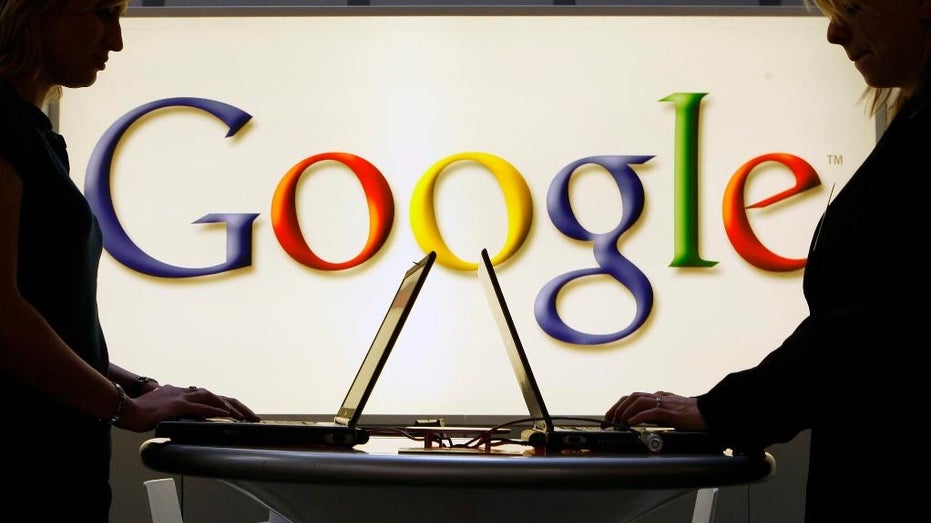Google says Supreme Court ruling could potentially upend the internet
Alphabet unit files brief in YouTube case brought by family of woman killed in Paris terrorist attacks
Bureaucrats operate like they have authority to shut down free speech: Domenech
Fox News contributor Ben Domenech weighs in after House Republicans set a hearing to discuss Twitter censorship on "Kennedy."
A case before the Supreme Court challenging the liability shield protecting websites such as YouTube and Facebook could "upend the internet," resulting in both widespread censorship and a proliferation of offensive content, Google said in a court filing Thursday.
In a new brief filed with the high court, Google said that scaling back liability protections could lead internet giants to block more potentially offensive content — including controversial political speech — while also leading smaller websites to drop their filters to avoid liability that can arise from efforts to screen content.
"This Court should decline to adopt novel and untested theories that risk transforming today’s internet into a forced choice between overly curated mainstream sites or fringe sites flooded with objectionable content," Google said in its brief.
Google, a unit of Alphabet Inc., owns YouTube, which is at the center of the case set for oral arguments before the Supreme Court Feb. 21.
EU COURT RULES GOOGLE MUST REMOVE SEARCH RESULTS PROVEN FALSE

The U.S. Supreme Court (AP Photo/Alex Brandon, File / AP Newsroom)
The case was brought by the family of Nohemi Gonzalez, who was killed in the 2015 Islamic State terrorist attack in Paris. The plaintiffs claim that YouTube, a unit of Google, aided ISIS by recommending the terrorist group’s videos to users.
The Gonzalez family contends that the liability shield — enacted by Congress as Section 230 of the Communications Decency Act of 1996 — has been stretched to cover actions and circumstances never envisioned by lawmakers. The plaintiffs say certain actions by platforms, such as recommending harmful content, shouldn’t be protected.
The immunity law "is not available for material that the website itself created," the petitioners wrote in their brief filed in November. "If YouTube were to write on its home page, or on the home page of a user, ‘YouTube strongly recommends that you watch this video,’ that obviously would not be ‘information provided by another information content provider."
| Ticker | Security | Last | Change | Change % |
|---|---|---|---|---|
| GOOG | ALPHABET INC. | 323.10 | -8.23 | -2.48% |
Section 230 generally protects internet platforms such as YouTube, Meta Platforms Inc.’s Facebook and Yelp Inc. from being sued for harmful content posted by third parties on their sites. It also gives them broad ability to police their sites without incurring liability.
The Supreme Court agreed last year to hear the lawsuit, in which the plaintiffs have contended Section 230 shouldn’t protect platforms when they recommend harmful content, such as terrorist videos, even if the shield law protects the platforms in publishing the harmful content.
GOOGLE, IHEARTMEDIA TO PAY MILLIONS AMID SETTLEMENT WITH FTC OVER PIXEL 4 ADS

Google says YouTube "abhors terrorism and over the years has taken increasingly effective actions to remove terrorist and other potentially harmful content."
Google contends that Section 230 protects it from any liability for content posted by users on its site. It also argues that there is no way to draw a meaningful distinction between recommendation algorithms and the related algorithms that allow search engines and numerous other crucial ranking systems to work online, and says Section 230 should protect them all.
"Section 230 is fundamentally the economic backbone of the internet," said Halimah DeLaine Prado, Google’s general counsel. "A ruling that undermines Section 230 would have significant unintended and harmful consequences."
In the plaintiffs’ lawsuit, they asserted that YouTube had knowingly permitted ISIS to post hundreds of radicalizing videos. They also alleged that YouTube affirmatively recommended ISIS videos to users.
In its latest filing, Google said YouTube "abhors terrorism and over the years has taken increasingly effective actions to remove terrorist and other potentially harmful content." Google has questioned the plaintiffs’ factual evidence of YouTube recommendations of terrorist videos.
Google also contested the case on legal grounds, saying that Section 230 barred the Gonzalez family’s claims.
BIG TECH CHALLENGES TEXAS SOCIAL MEDIA LAW AT SUPREME COURT

Sign at Twitter headquarters is shown in San Francisco, Calif., Dec. 8, 2022. (AP Photo/Jeff Chiu / AP Newsroom)
A trial judge and the Ninth Circuit U.S. Court of Appeals agreed with Google. The Supreme Court agreed to review the question of whether Section 230 covers a platform’s recommendations.
The court also has agreed to hear a similar case involving Twitter Inc. as well as Google and Facebook, although that case isn’t expected to focus on Section 230.
Lawmakers and President Joe Biden have long called for modifying Section 230 to address what they say are flaws in the law, but legislation to do so has repeatedly fizzled amid partisan differences.
CLICK HERE TO GET THE FOX BUSINESS APP
Meanwhile, Texas and Florida laws targeting alleged online censorship by Big Tech platforms are under separate legal challenges pending before the high court. The industry contends those laws, which seek to tightly regulate the platforms as common carriers, violate the platforms’ First Amendment free-speech rights by curbing their ability to take down or otherwise restrict content.




















